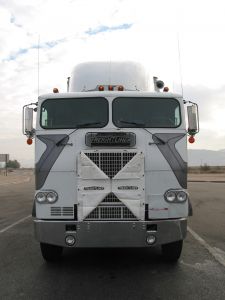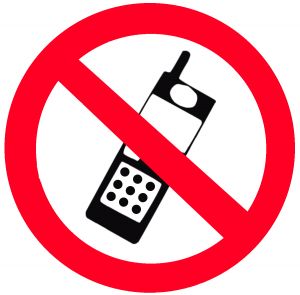Unsecure loads on trucks are a common cause of serious Massachusetts trucking accidents. A recent fatal accident happened when a loader/backhoe fell off a tractor-trailer being towed by a National Grid truck and landed right on top of a van on Interstate 495 in Southborough, according to boston.com. Criminal charges have not been ruled out completely.

The woman killed was pronounced dead on scene, a female driver was airlifted to UMass Medical Center in Worcester and two children were transported by ambulance to that same hospital. The truck ran off the road, but the driver was not injured. Police are looking to interview witnesses and reconstruction experts are doing their best to recreate the scene.
Our Boston personal injury attorneys realize that one of the first areas that will be examined in this accident is the measures that were taken to secure the heavy piece of construction equipment to that trailer. When the proper safety precautions are not executed, catastrophic injury can result.
Truck drivers can lose control of their tractor-trailers because of heavy-shifting cargo. This shifting can cause the cargo to fall. Oftentimes cargo includes lumber, logs and other heavy building products. It is also risky to transport heavy machinery, such as bulldozers and backhoes, as swerving can cause the cargo to break loose from its moorings. The Federal Motor Carrier Safety Administration’s regulations require that truck loads remain under a specific weight and for this reason it is important for you to contact an experienced attorney if you’re involved in an accident with a truck’s loose cargo; they can help to determine if any federal regulations were broken. There are also regulations that specifically detail how cargo is to be secured and fastened so that the truck’s maneuverability and stability is not adversely affected.
According to the National Highway Traffic Safety Administration, there were approximately 380,000 large trucks involved in traffic accident in the United States in 2008 alone. A large truck is classified as a vehicle having a gross vehicle weight rating of more than 10,000 pounds. Nearly 4,100 large trucks were involved in fatal traffic accidents that took the lives of nearly 4,500 people during that year. These deaths accounted for more than 10 percent of all of the traffic deaths in 2008. Another 90,000 people were injured in these accidents. Even though these large trucks made up only 4 percent of all registered vehicles in the U.S. in 2007, they accounted for nearly 10 percent of all of the vehicles miles traveled.
Those in a passenger-vehicle that are involved in a traffic accident with a large truck are most at risk. According to 2008 statistics, nearly 75 percent of those who were killed in these accidents were occupants of another vehicle (not of the truck), approximately 10 percent were nonoccupants and more than 15 percent were those in a large truck.
Of those who were injured in these accidents, more than 70 percent were those in another vehicle (not in the truck), 3 percent were nonoccupants and more than 25 percent were the occupants of the large truck.
Continue reading
 Boston Personal Injury Attorney Blog
Boston Personal Injury Attorney Blog




